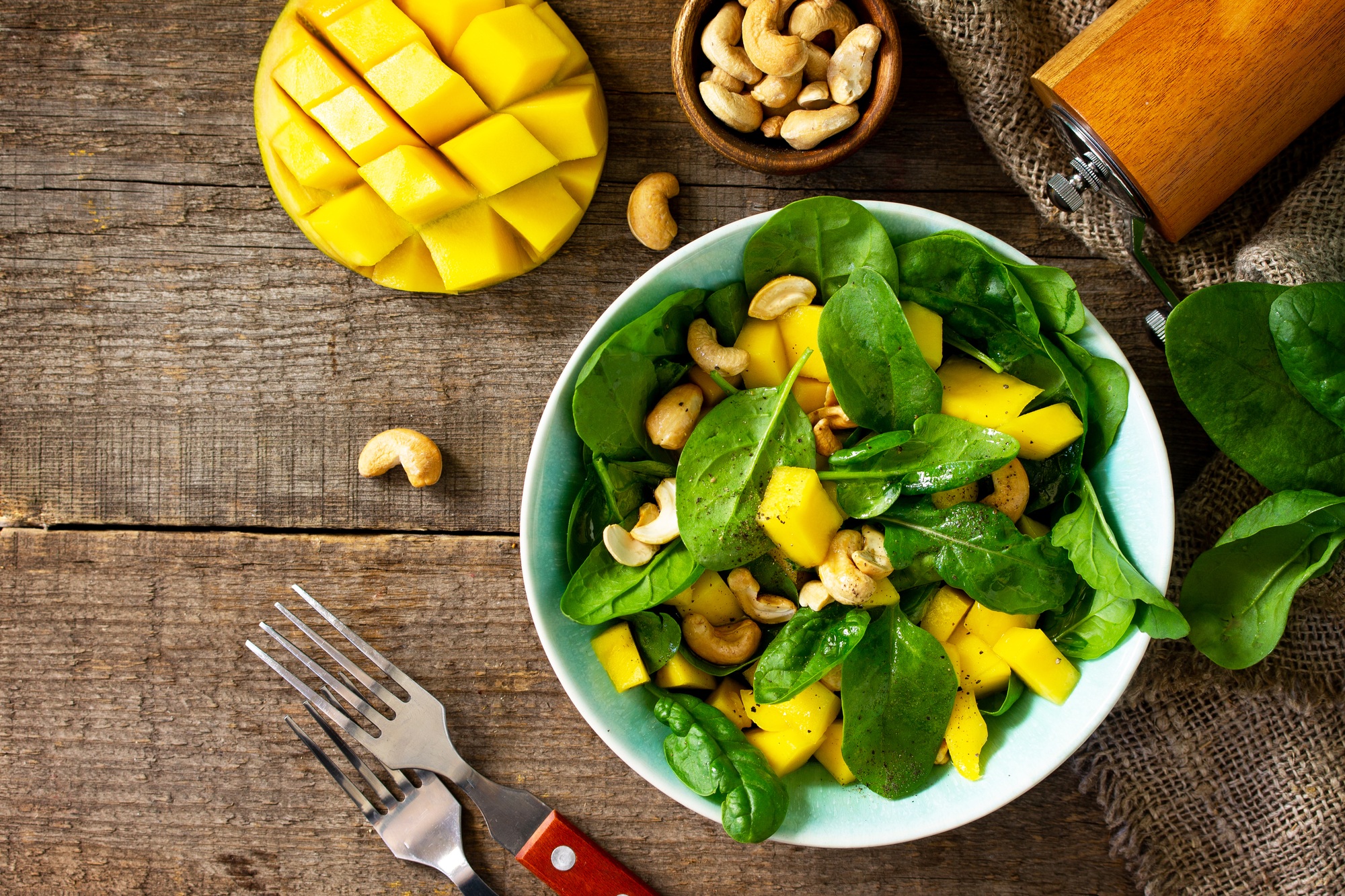
As awareness about environmental issues grows, many people are turning to more sustainable and eco-friendly lifestyle choices.
One of the most impactful changes we can make is in the way we eat. Sustainable eating involves selecting foods that are not only healthy but also have a minimal environmental impact.
By focusing on plant-based options, reducing food waste, and choosing locally sourced ingredients, we can make a significant difference in the health of our planet.
In this article, we will explore the concept of sustainable eating and provide some eco-friendly recipes that will not only nourish your body but also help you tread lightly on the earth. Let’s dive into how we can all embrace a more sustainable approach to our meals.
1. What is Sustainable Eating?
Sustainable eating refers to making food choices that support the health of the planet, animals, and people while providing nutritional benefits to our bodies. The key to sustainable eating lies in considering how food is produced, processed, and transported. This involves:
- Choosing Plant-Based Foods: Animal agriculture is a significant contributor to greenhouse gas emissions, deforestation, and water usage. By incorporating more plant-based meals into our diet, we can reduce our carbon footprint and support environmental sustainability.
- Local and Seasonal Ingredients: Locally sourced ingredients require less transportation, which reduces carbon emissions. Eating seasonal produce also supports local farmers and ensures that the food is at its peak freshness.
- Reducing Food Waste: A significant portion of food produced globally is wasted. By planning meals carefully, repurposing leftovers, and composting food scraps, we can reduce food waste.
- Organic and Sustainable Sourcing: Opting for organic and sustainably farmed ingredients ensures that the food is grown without harmful chemicals or practices that deplete soil health and biodiversity.
By making small changes in our eating habits, we can contribute to a healthier planet while enjoying delicious and nutritious meals.
2. Eco-Friendly Recipe: Sweet Potato & Black Bean Tacos
These plant-based tacos are packed with flavor and nutrition. They use sustainable ingredients, including locally sourced sweet potatoes and black beans, which are rich in protein and fiber.
Ingredients:
- 2 medium sweet potatoes, peeled and diced
- 1 can black beans, drained and rinsed
- 1 red onion, sliced
- 1 tablespoon olive oil
- 1 teaspoon cumin
- 1 teaspoon paprika
- Salt and pepper to taste
- Corn tortillas (preferably organic)
- Fresh cilantro for garnish
- Lime wedges for serving
- Salsa or guacamole (optional)
Instructions:
- Preheat the oven to 400°F (200°C).
- Toss the sweet potatoes with olive oil, cumin, paprika, salt, and pepper. Spread them on a baking sheet and roast for 25-30 minutes or until tender, flipping halfway through.
- While the sweet potatoes are roasting, heat a pan over medium heat and sauté the red onion for about 5 minutes until soft.
- Add the black beans to the pan and cook for another 3-5 minutes to heat through.
- Warm the corn tortillas in a dry pan or microwave.
- Assemble the tacos by adding roasted sweet potatoes, black beans, and onions to the tortillas. Garnish with fresh cilantro and a squeeze of lime. Serve with salsa or guacamole if desired.
This meal is simple, nutritious, and packed with flavors. The use of seasonal sweet potatoes and plant-based ingredients makes it a great choice for anyone looking to adopt a more sustainable diet.
3. Eco-Friendly Recipe: Zucchini Noodles with Pesto
Zucchini noodles (or zoodles) are a fantastic, low-carb alternative to traditional pasta. This dish combines fresh, locally grown zucchini with a vibrant homemade pesto sauce. It’s not only a healthy choice but also an eco-friendly one, as zucchini is a versatile, seasonal vegetable that requires minimal water to grow.
Ingredients:
- 2 medium zucchinis, spiralized
- 1 cup fresh basil leaves
- 1/4 cup pine nuts (or walnuts for a more affordable option)
- 2 cloves garlic
- 1/4 cup extra virgin olive oil
- 1 tablespoon lemon juice
- Salt and pepper to taste
- Cherry tomatoes (optional, for garnish)
Instructions:
- To make the pesto, combine basil, pine nuts, garlic, olive oil, lemon juice, salt, and pepper in a food processor or blender. Blend until smooth. If the pesto is too thick, add a little more olive oil to achieve your desired consistency.
- Spiralize the zucchinis into noodles using a spiralizer or julienne peeler.
- Toss the zucchini noodles with the pesto sauce until well coated.
- Serve the zoodles topped with fresh cherry tomatoes for an extra burst of color and flavor.
This dish is a perfect example of how you can enjoy delicious meals with a minimal environmental impact. By using plant-based ingredients and avoiding packaged pasta, you can create a sustainable and tasty meal.
4. Eco-Friendly Recipe: Lentil and Vegetable Soup
Lentils are an excellent source of protein and fiber, and they are one of the most eco-friendly food options available. They require minimal water to grow and have a low environmental impact. Paired with seasonal vegetables, this hearty soup is a nutritious and sustainable choice for lunch or dinner.
Ingredients:
- 1 cup dried green or brown lentils, rinsed
- 2 carrots, diced
- 2 celery stalks, diced
- 1 onion, chopped
- 2 cloves garlic, minced
- 1 zucchini, diced
- 1 can diced tomatoes
- 4 cups vegetable broth (preferably organic)
- 1 teaspoon cumin
- 1 teaspoon turmeric
- Salt and pepper to taste
- Fresh parsley for garnish
Instructions:
- In a large pot, sauté the onion, carrots, celery, and garlic over medium heat until softened (about 5 minutes).
- Add the zucchini and continue cooking for another 2-3 minutes.
- Stir in the lentils, diced tomatoes, vegetable broth, cumin, turmeric, salt, and pepper. Bring to a boil, then reduce the heat and simmer for about 30-40 minutes, or until the lentils are tender.
- Adjust the seasoning to taste, and garnish with fresh parsley before serving.
This lentil and vegetable soup is not only comforting but also sustainable. By using plant-based ingredients and choosing organic, locally sourced vegetables, you can reduce the environmental impact of your meal while enjoying a healthy, warming dish.
5. Eco-Friendly Recipe: Chickpea Salad with Tahini Dressing
Chickpeas are a powerhouse of nutrition, offering a great source of protein, fiber, and healthy fats. This chickpea salad is quick to prepare, packed with flavor, and perfect for a light lunch or side dish. It’s made with locally sourced vegetables and topped with a creamy tahini dressing for added richness.
Ingredients:
- 1 can chickpeas, drained and rinsed (or 1 1/2 cups cooked from dried)
- 1 cucumber, diced
- 1 bell pepper, diced
- 1/2 red onion, thinly sliced
- 1/4 cup fresh parsley, chopped
- 1 tablespoon olive oil
- 1 tablespoon lemon juice
- 2 tablespoons tahini
- 1 teaspoon garlic powder
- Salt and pepper to taste
Instructions:
- In a large bowl, combine the chickpeas, cucumber, bell pepper, red onion, and parsley.
- In a small bowl, whisk together the olive oil, lemon juice, tahini, garlic powder, salt, and pepper until smooth.
- Pour the dressing over the salad and toss until well combined.
- Serve chilled or at room temperature.
This chickpea salad is a perfect example of sustainable eating. With its reliance on plant-based, whole foods and minimal environmental impact, it makes for an eco-friendly, satisfying meal.
Conclusion
Sustainable eating doesn’t have to be complicated or bland. By incorporating more plant-based foods, choosing local and seasonal produce, and reducing food waste, we can make a positive impact on both our health and the environment.
The recipes shared in this article are a great starting point for anyone looking to embrace a more eco-friendly lifestyle without sacrificing taste or satisfaction.
By focusing on whole, natural ingredients and making mindful food choices, we can all contribute to a more sustainable future.
Whether you’re cooking for yourself or hosting a gathering, these eco-friendly recipes will help you nourish your body while caring for the planet. Let’s take small, thoughtful steps toward a healthier, greener way of eating.











